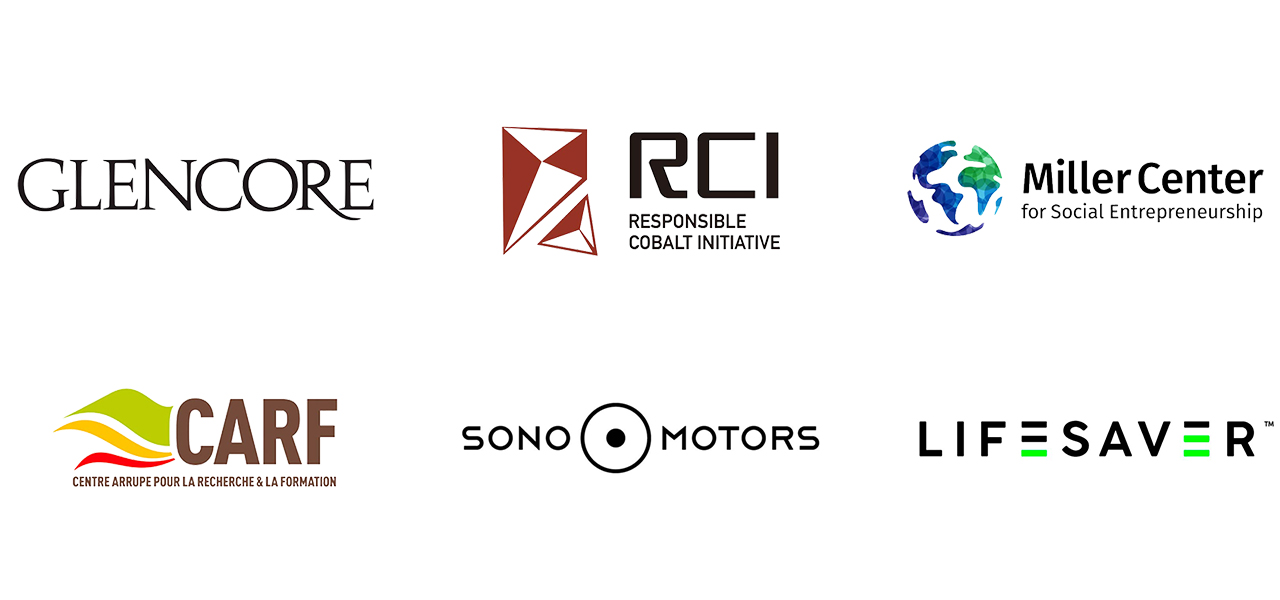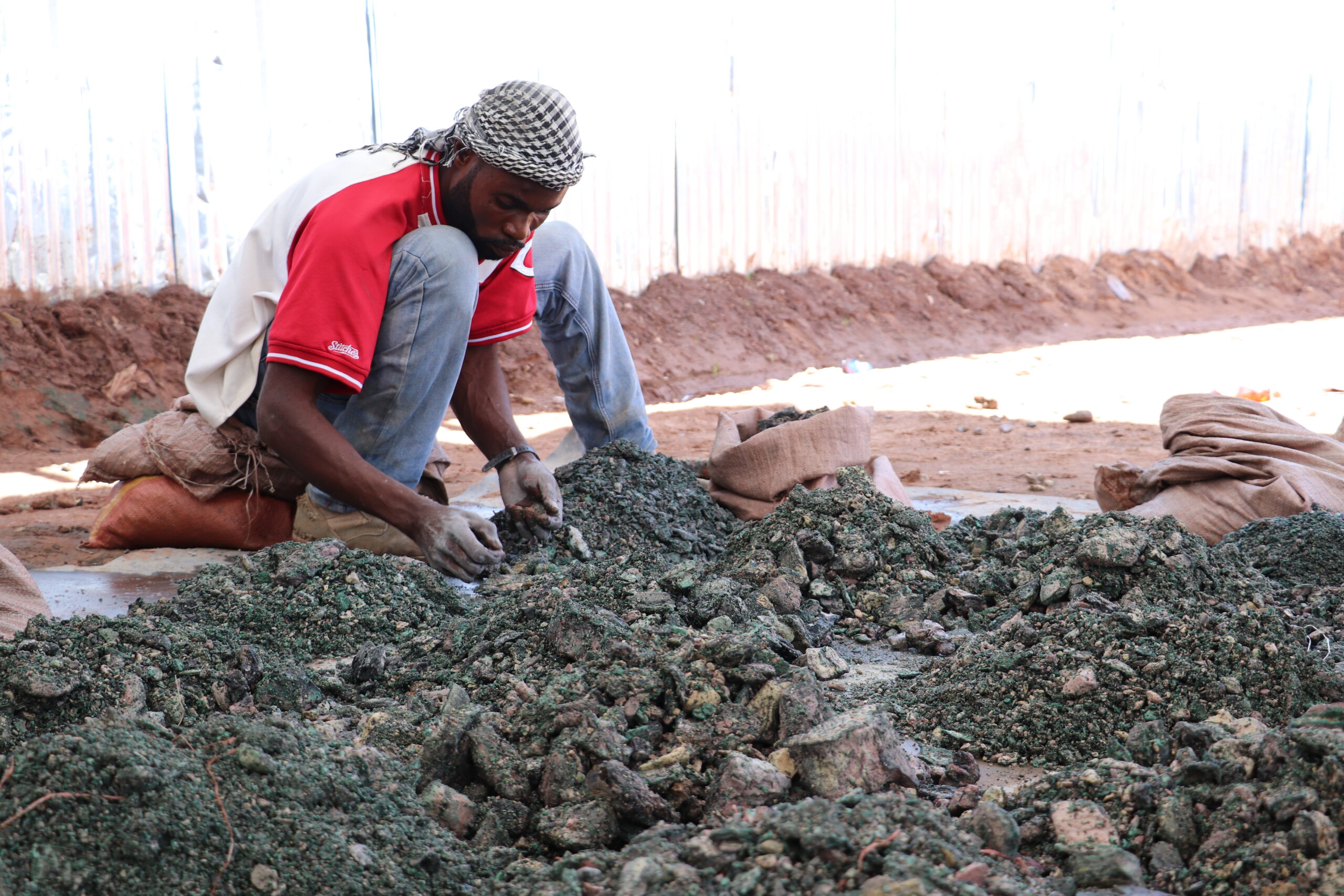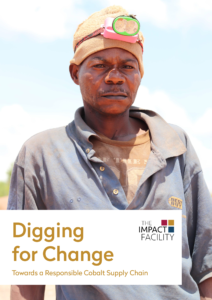Launching The Fair Cobalt Alliance
Working together to improve conditions in cobalt mines and communities in the Democratic Republic of Congo
A few weeks ago we were finally able to share with you “Digging for Change”, a strategy report zooming in on two artisanal cobalt mine sites serving as an example of and to reflect on the complex challenges associated with sourcing minerals from DR Congo.
Today marks a significant two-year milestone in our work in cobalt supply chains. From the outset, our team acknowledged that the everyday challenges facing the men and women mining cobalt are too big for any of one of us to address in isolation. This is a systemic problem requiring a systemic solution. Our joint action plan has grown into what is now the Fair Cobalt Alliance, an action platform for organisations along the supply chain to engage and play a role in the transition to a ‘fair’ production system, co-founded by our friends and colleagues at Fairphone, Signify and Huayou Cobalt. The Fair Cobalt Alliance (FCA) is officially joined today by our latest members and supporters for our public launch: Glencore, the Responsible Cobalt Initiative, Sono Motors, the Miller Center for Social Entrepreneurship, the Centre Arrupe pour la Recherche et la Formation (CARF) and Lifesaver.

Developing our Cobalt Programme
At The Impact Facility we build our programmes around the belief that responsible, productive and viable artisanal mining is achievable when supported by the provision of technical assistance and capacity building efforts that aim to improve minsite practices gradually and, at the same time, facilitate access to investment capital for equipment. To encourage miners to participate in a vision of a professional and legitimate artisanal mining sector that benefits local communities, we invest into mine site safety and productivity and market access, connecting artisanal mining operations to mid- and downstream companies seeking to integrate responsibly produced minerals into their products, forging economically sustainable, long-term sourcing relationships.
Our recent work in the artisanal gold mining operations in Kenya, Uganda and Tanzania, and with coloured gemstone miners in South America, has taught us plenty about what works, and what does not work. Artisanal gold mining and artisanal cobalt mining are very different, and artisanal recovery of topaz different yet again, but we find over and over again across all the different types of mining that viable micro and small businesses can be built if operators have access to technical assistance, investment capital and equipment as well as access to markets that recognize their legitimacy.
Over the last four years, artisanally-mined cobalt, which contributes anywhere between 10-20% of national Congolese cobalt production, has received much attention from international NGOs and media, making public its deep-rooted association with child labour and covering the tragic mine fatalities, some of which could have been avoided through improved management and, most importantly, through investment into these sites.
From our work on the ground, we know that many miners take great pride in their work and see cobalt mining as an opportunity to build a future for themselves and their families. This opportunity, however, must not come at the risk of anybody’s personal health and safety. The members of the FCA aim to positively impact the unacceptable socio-economic and working conditions experienced by many of these proud men and women working in the cobalt supply chain. To achieve this, we will be working in close coordination with both the national and provincial government of the DRC as well as with civil society and technical partners towards three objectives:
- Increasing the supply of fairer produced cobalt by supporting the professionalisation of artisanal mine management and safer and environmentally more responsible sites.
- Working towards child-labour free Kolwezi mining zone by supporting ASM operators in establishing credible control and monitoring mechanisms to keep children out of the mines and supporting the enrolment of children into school, and youth access to education and vocational training.
- Increasing household incomes by investing in community programmes, designed to create sustainable livelihoods other than mining, focused on the promotion of agriculture, entrepreneurship and business literacy

Welcoming our new members to the FCA
Cobalt is a key mineral in battery manufacture and the longer-term transition to a low-carbon economy. Our alliance connects cobalt from the ASM operations in Lualaba Province, in the Democratic Republic of Congo, to the global electronics and automotive supply chains. The founding members are joined by one of the world’s largest global diversified natural resource companies, Glencore; the Responsible Cobalt Initiative (RCI), a programme established by Chinese cobalt refining and mining companies active in the DRC to tackle risks facing workers at artisanal mines in the cobalt supply chain; German mobility provider, Sono Motors and Lifesaver, which delivers hire and return portable power banks for events and venues.
Knowledge and development organisations, amongst them Miller Center for Social Entrepreneurship, and Congolese civil society, including the Centre Arrupe pour la Recherche et la Formation (CARF) are also actively supporting and participating in the FCA, allowing us to leverage their great and insightful research to date around alternative livelihood opportunities, most recently discussed in their white-paper publication “Mining Alternatives Project – Advancing Sustainable Livelihoods in the Democratic Republic of Congo”.
None of the work to date and our plans for improving conditions are Kasulu and Kamiloombe would have been possible without the support of The Dutch Ministry of Foreign Affairs and Ministry for Foreign Trade and Development Cooperation, implemented by The Netherlands Enterprise Agency, who contributes to the alliance through a multi-year grant.
Clear focus on driving supply and demand of responsibly produced ASM materials

Full implementation of our pragmatic, yet ambitious continuous improvement plans will take five years and will start at the mines featured in “Digging for Change”: Kasulu and Kamilombe. Our ambition is to scale to more mine sites in coordination with relevant local stakeholders in the coming year, as our support and membership continue to grow.
While we focus our efforts in the DRC on improving the lives of the miners currently at risk of injury and poverty through partnership with the government and local civil society, the FCA will strengthen its cooperation with the Responsible Cobalt Initiative and the Responsible Minerals Initiative with the aim of achieving wider recognition of responsible ASM cobalt and encouraging officially sourcing from ASM, as companies contribute to investment into actively increasing the supply of responsible ASM cobalt.
With the global energy transition to more sustainable, battery-led technology, the demand for cobalt is widely expected to increase. A fairer battery is the key to making this shift. However, global cobalt supply is not projected to meet demand, and there is a risk that informal ASM under poor working conditions will increase to fill this gap. ASM is often associated with hazardous working conditions, child labour, and limited access to legitimate, transparent markets – falling well below international standards. Today, more than two-thirds of global cobalt supply comes from the DRC. Although the majority originates from large scale mining operations, a significant portion is extracted by ASM. Best estimates suggest that in 2019 about 11% of cobalt exported was from ASM, while at the peak of cobalt prices in 2018 ASM counted for as much as 20%. More significantly, cobalt ASM is a source of direct employment for more than 100,000 people, with the number of workers fluctuating based on market prices and especially now in light of the ongoing pandemic. Across metals and gemstones, experts estimate there are a total of 1.5 to 2 million artisanal miners in the DRC.
Given the relevance of ASM cobalt as a local livelihood and the fact that this material finds its way into complex global supply chains and into materials and devices on which we depend, the security of cobalt supply chains is more important than ever as our need for this highly relevant mineral in the new digital economy becomes evident. Where we find environmental, social or labour problems in supply chains, we should not avoid them, we should not disengage, but rather it is our duty to take action and make improvements.
The Fair Cobalt Alliance is a bold move to do just that – to bring about systemic change by working with the local partners and engaging all businesses in the supply chain to achieve a common goal.
To learn more about the FCA, download the full report ‘Digging for Change’ report, which provides the insights gained by the FCA when developing the program.




